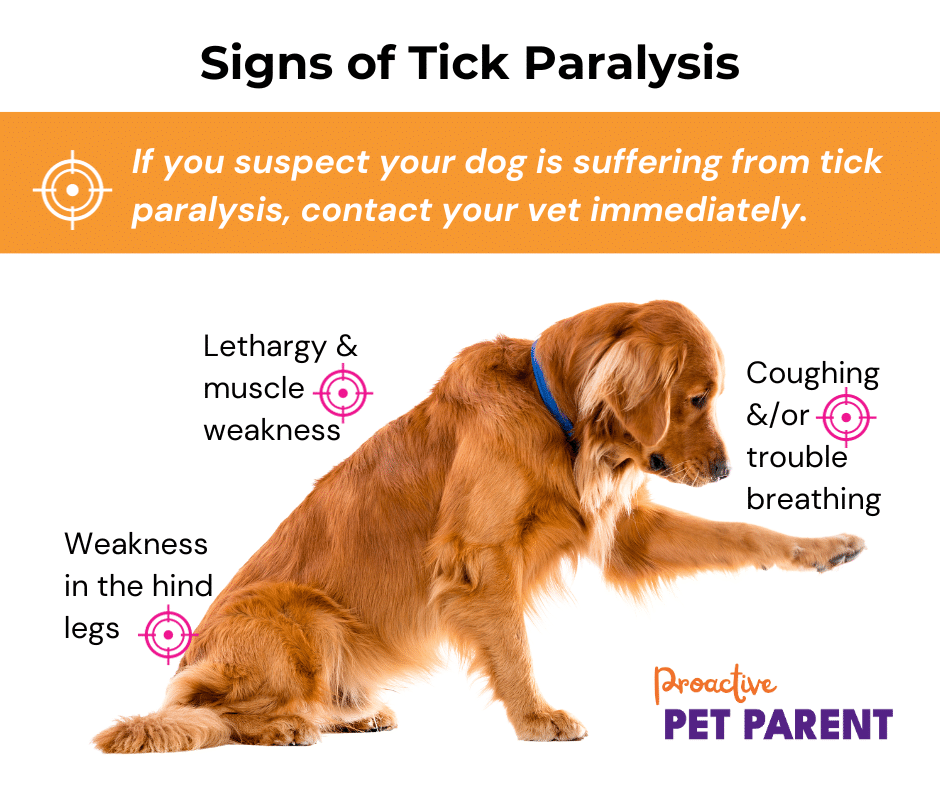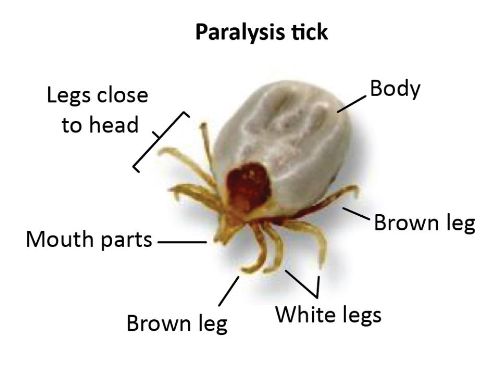
Tick paralysis is a fairly common condition affecting cats and dogs in Australia. It is rare in North America (rarer still in Europe) and affects only dogs here in Canada.
The disease produces a ‘flaccid’ form of paralysis which involves all four limbs completely immobilizing affected dogs. There are a number of other diseases (Fibrocartilaginous Emboli and Polyradiculoneuritis to name some) that produce a very similar form of paralysis. Most of these will eventually resolve, but it can take weeks or months. As it is often large breed dogs that are affected, and intensive care is required to nurse dogs through these conditions, these pets sadly are often euthanized after a few days or weeks of care.
Compounding the challenge of managing these conditions is the fact that there is no absolute diagnostic test to distinguish between these diseases. Tick Paralysis is unique in that once the offending tick is removed most affected dogs fully recover in 1-3 days!
When a dog presents with the typical flaccid paralysis (as ‘Mike’ did yesterday) we are glad if there is a tick on the coat as the removal of the tick (which Mike’s owner had already done) may allow the patient to recover relatively quickly. This was exactly how it played out for Mike. The dog who was carried into the hospital yesterday morning and who required intensive care all day walked into the clinic under his own power this morning!! ‘Mike’ is a very fortunate dog!
Garibaldi Veterinary Hospital is currently involved in a program initiated by the Canadian Veterinary Medical Association. Through this program we can have the species of any tick presented to us determined.
If your pet has a tick on it please contact us. We can show you how to properly and safely remove the tick and then we can identify it and test whether it could be a carrier of Lyme disease as well! At the same time we can also discuss with you how to avoid ticks and tick born diseases for your pet!

